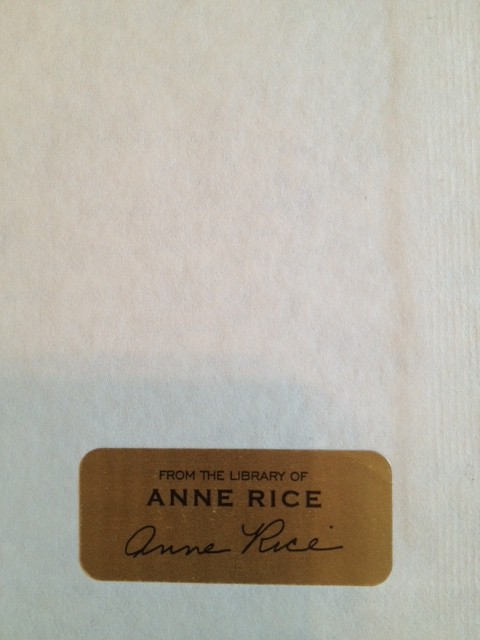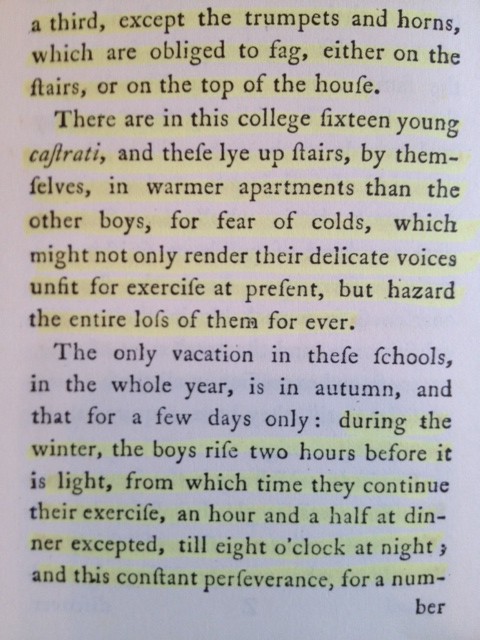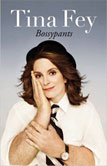What’s up turkeys?
It is my last weekend before the semester’s end and the LITERALLY ONE HUNDRED papers I will then have to grade in a little less than a week. This weekend, however, I have nothing but band practice, eating, lying down, and bathing. Huzzah!
I am not here to talk about my exciting high-octane lifestyle, however, for I come to you with a dark and twisted tale the likes of which ye have never afore heard. It all started when I gave a talk on Virginia Woolf at a recent panel. My talk itself was uneventful, but in payment for the extra time I took out of my day in order to do it, I received a $50 gift certificate to Powells, which I consider more than fair. With a gift certificate, one is less cautious in one’s choices than were one to spend one’s own hard-earned cash. This is what’s fun about it! $50 worth of just-for-fun books! Normally I would blow it all on novels satirizing academia, but this time I went to the music section like a good little scholar. There I found a great-condition facsimile of Charles Burney’s The Present State of Music in France and Italy, which was written I think in 1773 and is a timeless classic in my field, being a first-hand descriptive account of musical performances at that time. The index alone already provides delight enough to justify the book’s purchase (“Actors, Italian, why loud”) but soon some hidden additional gems revealed themselves!
First of all, as I was debating buying the book (it had struck my fancy, but still I wasn’t fully convinced), I noticed it had one of those “From the library of Anne Rice” stickers in it. Powells somewhat recently bought a ton of Rice’s books at an auction, or she donated them, or something, I forget, but anyway periodically you’ll see a book with this sticker on it.
“Well that’s fun,” I thought, and decided to go ahead and get the book. I thought no more of it for some time, as I had to do approximately one million things during the next 24 hours, during which time it SNOWED and became quite miserable here, with the added madness of snow-commuting thrown in to boot.
Having finally finished this madhouse of a week, I retired to my home, where I currently am sitting in long underwear and with a steaming coffee cup beside me. The old man and I, engaging in desultory conversation as we like to do of a Saturday morning, began discussing music criticism (specifically, I was reading aloud from Copland’s The New Music, which we were finding frustrating, to whit:
One is always being told that Mahler was no Beethoven. Quite so. The difference between listening to Beethoven and listening to Mahler is the difference between watching a great man walk down the street and watching a great actor act the part of a great man walking down the street.)
This discussion led to me pulling down my Virgil Thompson and the old man reading aloud from several essays in which he (the old man) asserts that Thompson is stealing from Adorno. Anyway, it doesn’t matter, the point is that THEN I thought, well lets go even further back in time, and lets take a look at this wonderful old Burney facsimile. Looking through the index (“accompaniments, loud ones censured”) I came upon “Electricity,” which sparked my interest (pun) because I was like “1773? Electricity? I know who this is going to be about,” and indeed, I found my old friend “Dr. Franklin,” the man who invented the bifocals and the witty remark, and who, COINCIDENTALLY, my talk on Virginia Woolf had featured as a central figure (long story):
Perhaps the grave and wise may regard music as a frivolous and enervating luxury; but, in its defense, Montesquieu has said that “it is the only one of all the arts which does not corrupt the mind.” Electricity has likewise, by some, been considered merely as furnishing matter of speculation to the philosopher, and of amusement to the curious; and it has frequently been lamented, that a principle, so universal in nature, has never yet, with much certainty, been applied by its discoverers to any very useful purpose. However, the identity between lightning and electric fire, first proved by Dr. Franklin, has led him to one of the most useful discoveries which philosophy can boast, that of the conductors invented for the preservation of buildings from lightning; nor are there wanting some striking and well authenticated instances of its salutary application to the medical art
Unreal. Thoughts from a time when studying electricity–the single most important factor in the emergence of modern industrial society–had to be defended against people who thought it was just a silly and dangerous matter for philosophers. And comparing it to music, similarly thought to have no utilitarian purpose!! Somewhat less convincingly, Burney goes on to point out that music can ease the pains of childbirth, a historical image it is really difficult to picture (like, a string quartet playing in a room where a lady is screaming and blood is pouring out every which way and the windows are all shut because they thought vapors gave you the plague or whatever? Still, if Burney says so, it probably happened). He also says that music has the power to “stop the ravages of a disease which attacks the very source of life,” a claim for which he provides a footnote saying simply “The musical performance for the Lock Hospital.”
There is obviously much here that a person might want to do some further research upon, but at this point my eye was caught by the index entry for Farinelli. Farinelli, I’m sure I need not tell you, was the world’s most famous castrato. Superstar of superstars! Castrati, as I’m sure I need not tell you, were male opera singers who had been castrated before puberty to retain their soprano voices. It was a huge phenomenon, mainly in Italy, for a good couple hundred years, for various reasons. On the one hand, women weren’t always super welcome onstage during the birth of opera, although they were used in the fancy court operas of like Louis XIV, where conversely CASTRATI were never allowed. The gender thing is a real issue, because men are more sensitive and refined artists than women, of course, so obviously one would prefer to only hear men singing whenever possible. On the other hand, sometimes operas have to portray romantic relationships (lol), which means a woman and a man. But you can’t have two men singing love songs to each other, it will sound weird, how coarse (one thinks of Jules Janin on the male dancer: “imagine a male dancer, as ugly as you or I!”). So you need countertenors and sopranos, but men aren’t sopranos, because of their hormones! Sometimes, especially as the 18th century wore on, of course, you can have a great female diva do the part, but still, would we not rather to hear a castrato, who has all the refinement, taste, and wisdom of a man but the high and pure voice of a woman? Plus the Baroque was all about ornament and artifice, and what could be more beautifully artificial than a castrato—an artist, as one musicologist points out, who is MADE, not born?
So these castrati became international sensations. They were total sex gods, A-listers, the ultimate celebs of their time. Unfortunately this cultural phenomenon led to the castration of vast numbers of boys who couldn’t sing at all, by their unscrupulous parents (Burney describes corner barbershops where you can get the operation done for a nickel or something), in the hopes of making some money. Burney says there isn’t a churchyard in Italy that isn’t full of failed castrati begging for food. Gnarly!
ANYWAY. Perhaps you can see what happens next in this little narrative!
I turned to the first page listed for Farinelli, only to discover HIGHLIGHTING. My instinct was to say out loud, “oh man, who would highlight in this nice book!” Then I remembered, “oh, it was Anne Rice, how weird–” then suddenly I GASPED, because I recalled that Anne Rice WROTE A NOVEL ABOUT CASTRATI that was clearly based on the life of Farinelli!!
I flip through the rest of the book. Sure enough, she’s highlighted everything having to do with castrati, Farinelli, the details of a boy’s musical education in 1700s Italy, the makeup of the conservatory where Farinelli was trained, the daily lives of the boys there, the color of their uniform. She’s also highlighted apocryphal Farinelli anecdotes, like the one where, singing opposite a great tenor, Farinelli’s voice was so magical and overwhelming that his fellow actor was undone and unmanned, and, breaking character, raced across the stage to take Farinelli in his arms.
So I accidentally bought a book Anne Rice bought for research! It’s so utterly delightful to me to think of Anne Rice reading Charles Burney for research. And it’s so fun to follow her research throughout the pages. I know if I actually read her castrati book (Cry To Heaven) I will see all these details. The blue uniforms, the horns and flutes blaring on the stairs, the castrati in their warm beds on the top floor, away from all the racket.
PLAY ENJOYED BY ALL




Thanks for letting me know what happened to that book. I posted a link to your blog on my FB page. I am grateful Powell’s was willing to take those books. Otherwise they might have been destroyed, due to the markings, etc.
Wow!! Amazing, thank you! I’m glad Powell’s took the books as well. It’s fun to periodically see them there, dispersed amongst all the shelves. I will cherish your Burney!
Great blog post! Even more interesting, the reason I saw it is because Anne Rice posted about it on facebook … : )
What a find! *almost jealous!*
Read it. You won’t be disappointed. It’s one of those novels that leave you with a small ache deep inside the core of your being.
Thank you so much for sharing this delightful story with us. I’ve read “Cry to Heaven” so I knew which book you were referring to immediately. I did not know until I read this that it was based on the life of Farinelli, nor did I know about the sad historical sidenote of the failed castrati beggars – it reminded me of the scene in “Slumdog Millionaire” where the cruel criminal overlord purposely blinded a boy so he could make more money as a singing beggar.
I am a firm believer in ” Everything for a Reason” Being a lover of books myself, this story made me smile… Thank you both for sharing.
I love this story!! I’m a blogger and also a fan of Anne Rice and her book Cry to Heaven!
What a langniappe! I’m a huge fan of Ms. Rice’s works and even live near the house she called home in New Orleans!
What a yarn! I just read this twice.